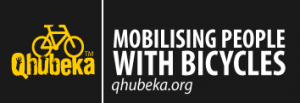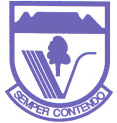CSR
WE DON’T LIVE OR WORK IN ISOLATION.


UNICEF and the 2030 Agenda for Sustainable Development
For 15 years, the Millennium Development Goals (MDGs) were a guiding force on many issues affecting the lives of children, young people and their families. Over this time, tremendous progress was made in reducing preventable child deaths, getting more children into schools, reducing extreme poverty and in ensuring more people have access to safe water and nutritious food.
With the passage of the new Sustainable Development Goals (SDGs) in September of 2015, world leaders have set forth a course for the next era of human development that is transformational for both people and planet. Governments, NGOs and the people will now need to be involved in implementing the agenda so that it delivers for all children globally.
Doos’ commitment to these goals focus primarily on the children of Africa and the world’s refugee crisis.


The Swedish Society for the Hearing Impaired
(Hörselskadades Riksförbund)
Doos wants to be part of the ongoing work which HRF does to ensure that human rights are respected and accessibility for children and adults with hearing loss shall be fair and equal. People with hearing loss shall receive equal and fair education, service and treatment and shall be able to participate in society on equal footing with everyone else.
There are about 1,4 million deaf or hearing impaired people in Sweden. Most of these have varying degrees of hearing impairment – from ‘not hearing very well’, to not hearing anything at all. Approximately 8 000-10 000 persons with hearing impairment are children. One out of twenty children has a language disorder preventing them from understanding and using the language.
HRF is for anyone who has a hearing impairment or are deaf, for anyone with tinnitus, hyperacusis or Meniere’s disease. HRF also support families, especially parents of hearing impaired children and support the UN Convention on the Rights of Persons with Disabilities – a convention that Sweden has ratified and pledged to live up to. Doos will continue to help achieve these goals.


The Qhubeka Project
Doos has maintained a significant commitment to the Qhubeka project, the World Bicycle Relief program in South Africa. Doos has helped Qhubeka supply bicycles to school children through the program Bicycle Education Empowerment Programme (BEEP).
By reducing the time it takes for students to commute to and from school, bicycles enable them to spend more time in class and on homework. Students are less tired and therefore better able to concentrate on their schoolwork and more liable to increase attendance in school. The project also works on retaining more girls in school, improving teacher attendance and teacher access to professional development activities.
Doos is providing bikes as well as other gifts to the Qhubeka Project.


The Swedish Childhood Cancer Foundation
(Barncancerfonden)
Doos supports the Swedish Childhood Cancer Foundation in their fight against childhood cancer and to ensure that the affected children, adolescents and their families receive the care and support they need.
Every year approximately 300 families in Sweden are faced with the unimaginable – word from a doctor that a child has cancer. The Cancer Foundation works to make life easier for these families, help families get the assistance and care they need and help with information and support in difficult crises.


The Vera School for Learners with Autism
Doos supports the Vera School in Cape Town, South Africa. The Vera Scool is a resource centre for Autism Spectrum Difference. The school delivers a specialized service to enrolled learners and perform a variety of functions to enlighten and support the community about ASD.
The school works on the basis of respect for human variety and dedication to understanding the experience of living from the perspective of the individual with autism.



